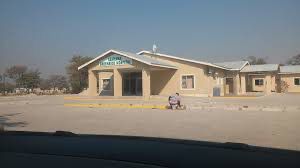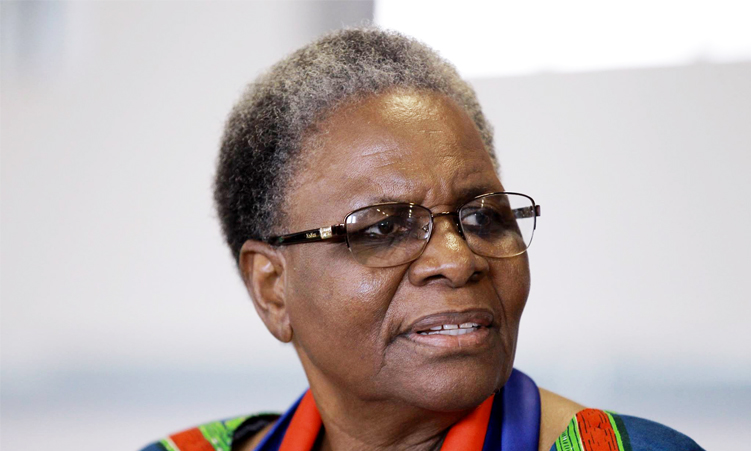BELGRADE – Two former members of a Serbian paramilitary police unit and 10 co-conspirators were found guilty yesterday of the assassination of reformist Prime Minister Zoran Djindjic four years ago.
Former special police commander Milorad ‘Legija’ Ulemek, once a Foreign Legionnaire, and his deputy Zvezdan Jovanovic, were convicted of conspiring with fellow paramilitary and underworld figures to carry out the March 12 2003 shooting. “It was all prepared by Ulemek.Jovanovic fired the shots,” judge Nata Mesarevic told the Belgrade special court that has tried the case for the past three-and-a-half years.The verdict in the biggest and most controversial trial since the fall of strongman Slobodan Milosevic in 2000 came as little surprise.But many Djindjic supporters say the court failed to uncover who was really behind the assassination.Ulemek and Jovanovic each received the maximum sentence of 40 years in prison.The two men half-smiled on hearing a verdict that was exactly what they had expected.Four accomplices were given prison sentences of 35 years, five of 30 years, and one of eight years.Five of the 12 are on the run and were judged in absentia in what local media called Serbia’s “trial of the century”.Serbian president Boris Tadic, who now leads Djindjic’s Democratic Party, was in court for the verdict, and about 100 people gathered outside the court carrying the party flag and banners demanding the truth about the conspiracy.”Even 40 years is not enough”, said one banner.Ulemek supporters with the red rose emblem of his feared police unit tattooed on their necks were only allowed into the courtroom after they turned up their shirt collars to conceal the symbol.Most defendants were members of the Zemun mafia gang, and many fought as paramilitaries in the Bosnia, Croatia and Kosovo wars backed by the late autocrat Milosevic.Djindjic, a youthful pro-Western reformer, took power after Milosevic was ousted in October 2000.He was vilified by nationalists as a traitor in 2001 for extraditing the strongman to the Hague war crimes tribunal.The indictment said the defendants killed Djindjic, 50, to bring hardliners back to power, to avoid being sent to The Hague, and because they feared a crackdown on lucrative organised crime.Nampa-Reuters”It was all prepared by Ulemek.Jovanovic fired the shots,” judge Nata Mesarevic told the Belgrade special court that has tried the case for the past three-and-a-half years.The verdict in the biggest and most controversial trial since the fall of strongman Slobodan Milosevic in 2000 came as little surprise.But many Djindjic supporters say the court failed to uncover who was really behind the assassination.Ulemek and Jovanovic each received the maximum sentence of 40 years in prison.The two men half-smiled on hearing a verdict that was exactly what they had expected.Four accomplices were given prison sentences of 35 years, five of 30 years, and one of eight years.Five of the 12 are on the run and were judged in absentia in what local media called Serbia’s “trial of the century”.Serbian president Boris Tadic, who now leads Djindjic’s Democratic Party, was in court for the verdict, and about 100 people gathered outside the court carrying the party flag and banners demanding the truth about the conspiracy.”Even 40 years is not enough”, said one banner.Ulemek supporters with the red rose emblem of his feared police unit tattooed on their necks were only allowed into the courtroom after they turned up their shirt collars to conceal the symbol.Most defendants were members of the Zemun mafia gang, and many fought as paramilitaries in the Bosnia, Croatia and Kosovo wars backed by the late autocrat Milosevic.Djindjic, a youthful pro-Western reformer, took power after Milosevic was ousted in October 2000.He was vilified by nationalists as a traitor in 2001 for extraditing the strongman to the Hague war crimes tribunal.The indictment said the defendants killed Djindjic, 50, to bring hardliners back to power, to avoid being sent to The Hague, and because they feared a crackdown on lucrative organised crime.Nampa-Reuters
Stay informed with The Namibian – your source for credible journalism. Get in-depth reporting and opinions for
only N$85 a month. Invest in journalism, invest in democracy –
Subscribe Now!






